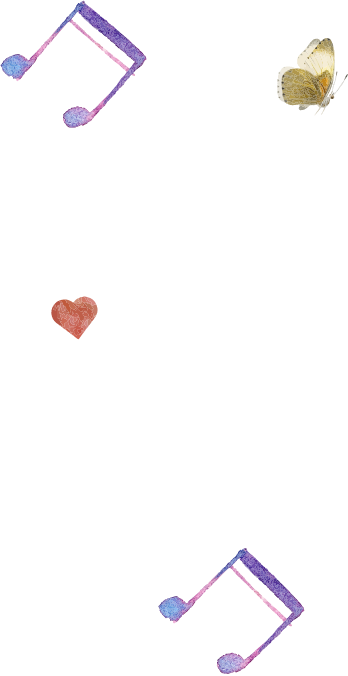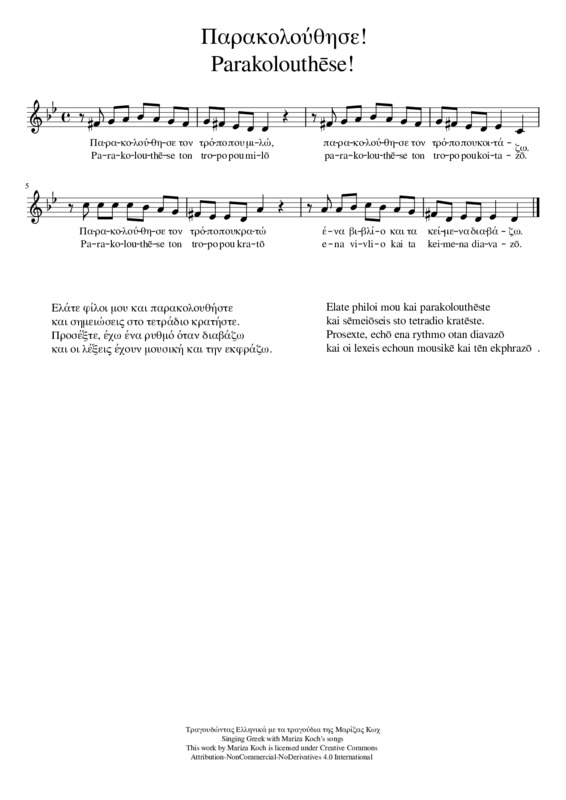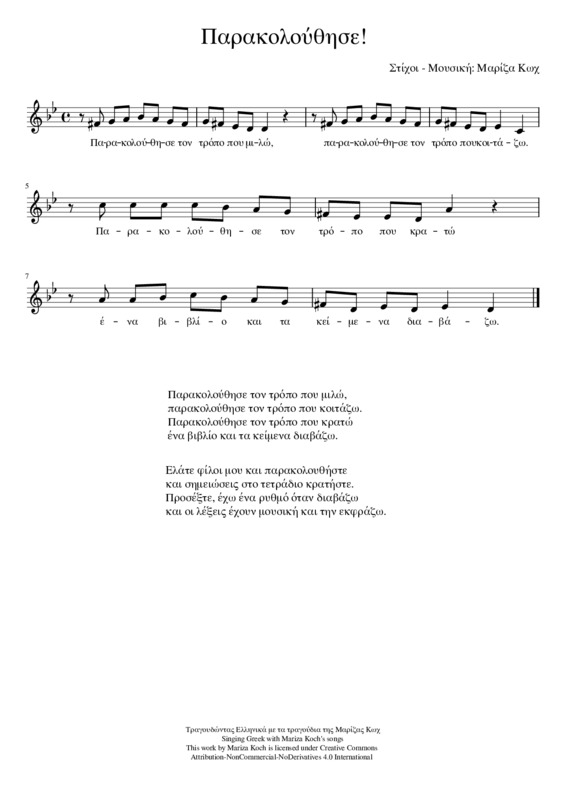
Parakolouthēse!

Parakolouthēse!
Pronunciation
Articulation of the phoneme /π/ (/p/) and its use in Greek language [πέφτω (pephtō, to fall), παρακαλώ (parakalō, please) etc.]. // Find the phoneme /p/ in the names of the children of the class or in other words of the Greek language.
Familiarize with the articulation of polysyllabic words [παρακαλώ (parakalō, please), προτιμώ (protimō, to prefer), περιμένω (perimenō, to wait), παρακολουθώ (parakolouthō, to watch), etc.].
Familiarize with the articulation of polysyllabic words [παρακαλώ (parakalō, please), προτιμώ (protimō, to prefer), περιμένω (perimenō, to wait), παρακολουθώ (parakolouthō, to watch), etc.].
Speech Comprehension and Production
Make the distinction between the verbs of 1st [κοιτάζω (koitazō, to look), διαβάζω (diavazō, to read), εκφράζω (ekphrazō, to express)] and 2nd conjugation [μιλώ (milō, to speak), κρατώ (kratō, to keep), παρακολουθώ (parakolouthō, to watch)] and find the verbs in the text.
Learn the imperative in two persons, 2nd person singular and plural [παρακολούθησε (parakolouthēse, watch), παρακολουθήστε (parakolouthēste, watch) and practice the imperative of the verbs of the text.
Divide the class into groups, where each group renders an action or behavior using pantomime. The other groups guess and accurately express the action and the quality of the action (manner) using verbs and adverbs describing manner.
Watch photos or videos, find and describe different expressions.
Learn the imperative in two persons, 2nd person singular and plural [παρακολούθησε (parakolouthēse, watch), παρακολουθήστε (parakolouthēste, watch) and practice the imperative of the verbs of the text.
Divide the class into groups, where each group renders an action or behavior using pantomime. The other groups guess and accurately express the action and the quality of the action (manner) using verbs and adverbs describing manner.
Watch photos or videos, find and describe different expressions.
Music Activities
Learn the song and practice correct phrasing. Standing in a circle, a pupil holds a ribbon describing the movement of the phrase and at the end of each phrase he hands it to the next pupil.
Practice in observation, coordination and memorization of the moving patterns: The pupils stand in a circle, the first one starts with movements at 4/4 time while singing the phrase rhythmically: "Ο Αλή μπαμπά και οι 40 κλέφτες" (O Alē bampa kai oi 40 klephtes). The first pupil is responsible to construct a different movement during each meter (in canon), which is then continued at the next meter. The next pupil performs the same rhythmic pattern with the difference of one meter (like in canon), following each time the movements of the child standing to its left. So does the rest of the group. Whoever misses even a single movement, the game stops and starts from the beginning.
A pupil starts improvising by expressing a feeling on a musical instrument or using his/her voice. The rest of the class observes the improvisation and tries to render the same feeling through group improvisation. Repeat the activity with another pupil on the role of the conductor.
Rhythmic performance of the lyrics in 3/4, 5/8, 7/8 and 9/8 times (group activity).
Practice in observation, coordination and memorization of the moving patterns: The pupils stand in a circle, the first one starts with movements at 4/4 time while singing the phrase rhythmically: "Ο Αλή μπαμπά και οι 40 κλέφτες" (O Alē bampa kai oi 40 klephtes). The first pupil is responsible to construct a different movement during each meter (in canon), which is then continued at the next meter. The next pupil performs the same rhythmic pattern with the difference of one meter (like in canon), following each time the movements of the child standing to its left. So does the rest of the group. Whoever misses even a single movement, the game stops and starts from the beginning.
A pupil starts improvising by expressing a feeling on a musical instrument or using his/her voice. The rest of the class observes the improvisation and tries to render the same feeling through group improvisation. Repeat the activity with another pupil on the role of the conductor.
Rhythmic performance of the lyrics in 3/4, 5/8, 7/8 and 9/8 times (group activity).
Cross-thematic Connections - Greek Culture
Interdisciplinary concept: communication.
Research different ways of expression and communication of people across countries: find differences in hand gestures, body posture, body language, facial expressions, tone of voice, etc. Watch videos with different expressions and perform them theatrically.
Match Greek phrases with hand gestures and facial expressions: one pupil says a phrase and the others render the movement and vice versa.
Research different ways of expression and communication of people across countries: find differences in hand gestures, body posture, body language, facial expressions, tone of voice, etc. Watch videos with different expressions and perform them theatrically.
Match Greek phrases with hand gestures and facial expressions: one pupil says a phrase and the others render the movement and vice versa.
Age level
7-11 years old
Language level
Intermediate
Me tē Mariza tragoudō ellēnika mathainō





